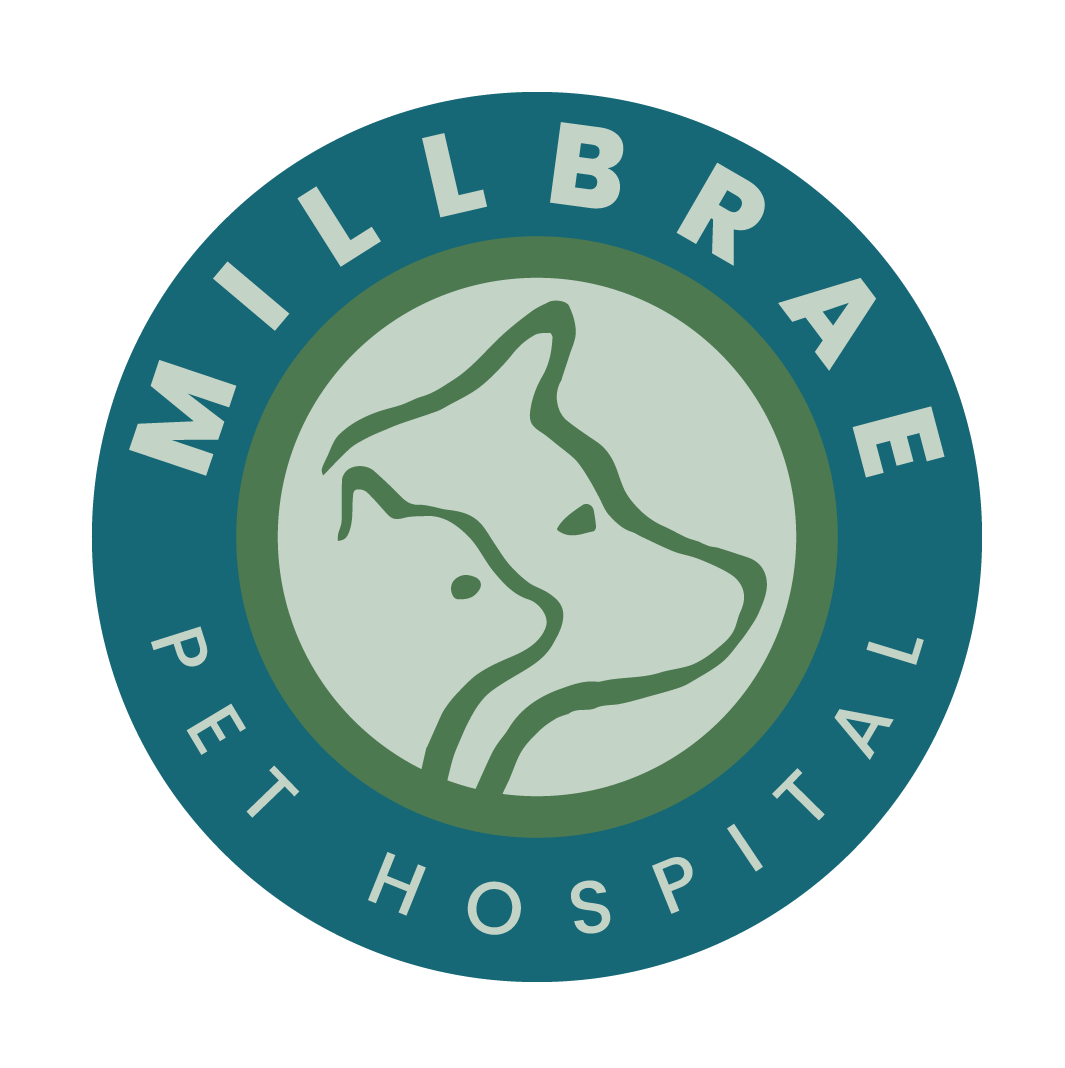FAQs
There is no question too big or too small for our veterinary team. Below are some answers to our most common questions.
We proudly serve the pets of Millbrae, CA and beyond.
At Millbrae Hospital, we get a ton of interesting questions from pet parents. Below are some common FAQs that might help answer any questions or concerns. Please feel free to call or text us at 650-583-1500 for any other concerns you might have about your pet.
How do I transfer my pets’ records from a previous clinic?
We can either request your prior vet, or you can just email/fax them to us. Our email address is [email protected]
Fax: 650-871-7160
What common emergencies must be seen as soon as possible?
Unconsciousness, severe vomiting/ diarrhea, open wounds, choking & difficulty breathing, difficulty urinating in male cats, injury to eyes, poison exposure (chocolate, etc.), seizures, lameness and fractures, pain-induced anxiety, and heat stroke (panting excessively blue gums, dry tongue, staggering, stupor or seizure, bloody diarrhea, and vomiting), female in labor, foreign body ingestion, hit by a car.
What are the benefits of having my pet spayed or neutered?
The risk of testicular cancer is eliminated and decreases the incidence of prostate disease in males. It also reduces the risk of pyometra in females as well as reduces the number of unwanted cats/kittens/dogs/puppies that may end up in shelters.
Can My Pet Make Me Sick?
When do you need fecal samples, and why?
Fecal is recommended yearly to make sure pets are parasite-free, or if the pet has ongoing diarrhea or weight loss, to make sure they are parasite-free. It is also recommended to bring in examples if the pet has had diarrhea for several days.
What Vaccinations Should My Pet Get?
For Dogs: Vaccines for canine parvovirus, distemper, canine hepatitis, Bordetella, and rabies are considered core vaccines. Non-core vaccines are given depending on the dog’s exposure risk.
For Cats: there are two primary vaccines your indoor cat needs to stay healthy throughout her life: the rabies vaccine and the combination vaccine FVRCP—this vaccine protects against feline Viral Rhinotracheitis (feline herpes), Panleukopenia virus (feline distemper), and calicivirus. If the cat is indoor/outdoor FELV vaccine is recommended to be added.
Why is my pet scooting its rear on the ground?
Are there payment plans available for my pet’s care?
Is it necessary to bring my dog and/or cat in for a yearly comprehensive exam?
It is necessary that a pet has an annual exam up to date. In order to keep flea tick and or heartworm medication active. Any prescription food or medication refills require an annual exam to be up to date, even when ordering from online sources.
How do I know when my pet needs a dental performed?
If you notice any of the following symptoms, it’s time to call your vet to book a dental appointment for your pooch:
1. Bad breath
2. Loose, broken, or badly decayed teeth
3. Extra teeth or retained baby teeth
4. Brown or yellow teeth
5. Obvious signs of tartar buildup
6. Abnormal drooling
7. Chewing or dropping food from their mouth
Can you help with my pet insurance?
Should I call ahead to book an appointment?
Yes, to avoid the same-day walk fees
Why Does My Pet Eat Poop?
In many cases, dogs start to eat their poop because of some kind of environmental stress or behavioral triggers, including isolation. Studies have shown that dogs who are kept alone in kennels or basements are more likely to eat poop than those dogs who live close to their people. However, if the client requests, we can ask the doctor to prescribe medication.
